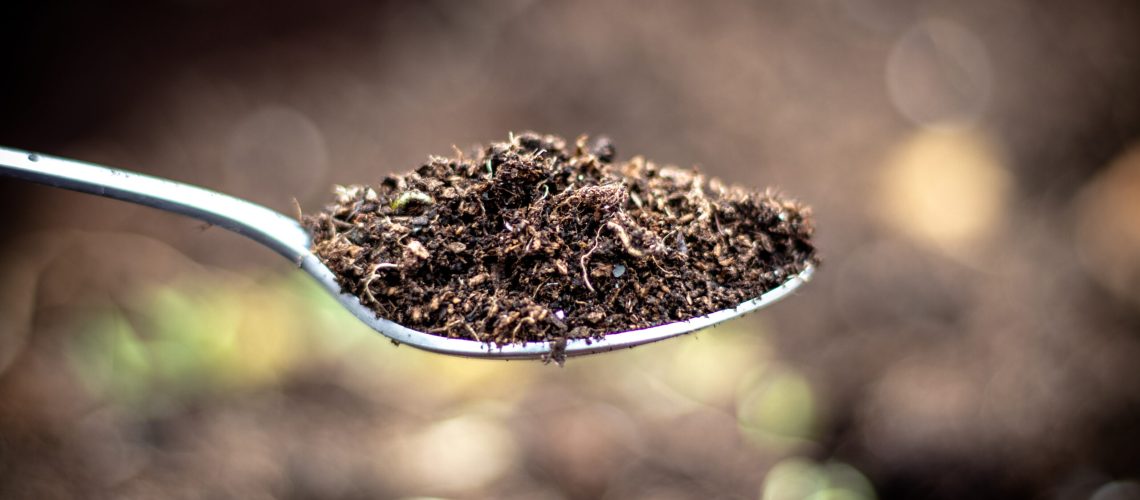A teaspoon of healthy soil contains billions of microbes.
Microbes feed the plants, strengthen their roots, and increase their yields. A plant sends signals to attract the microbes it needs at any given moment. In chemical-free agriculture, there is a good marriage between plants and microbes. In a complex, self-regulating system, plants and microbes work harmoniously, nourishing each other.
The chemistry of a plant sends specific nutrients to attract microbes to strengthen its immunity. The plant is not only capable of diagnosing its needs, it also makes its own medicine. When chemicals interfere with self-regulation, the plants are weakened. What should you do to improve the health of your plants? Build your microbial biomass by building your soil. Soil structure is the microbial home. A couple ways to build your soil structure are composting and cover crops. The roots in the soil are home to microbes. In nature, soil is covered, not fallow. The global soil degradation and desertification affects us all.
The microbes found in soil are also found in our gut. The health of the soil impacts the nutritional value of our food and our health. The immunity of a plant impacts our own immunity. What we eat is essential to our own wellbeing. By taking care of the land and our agriculture, we are also taking care of ourselves. In this interview with Dr. Judy Fitzpatrick, microbiologist and diagnostic developer, we deepen into the importance of microbial biomass, the ratio of fungi to bacteria, plant – and human – immunity, and how to build soil
structure.
This article was featured in the April 2022 issue of Heart & Soil Magazine Rooted in Wisdom.
Click here to listen to the full interview on Heart & Soil TV.

